Peter Marino interview
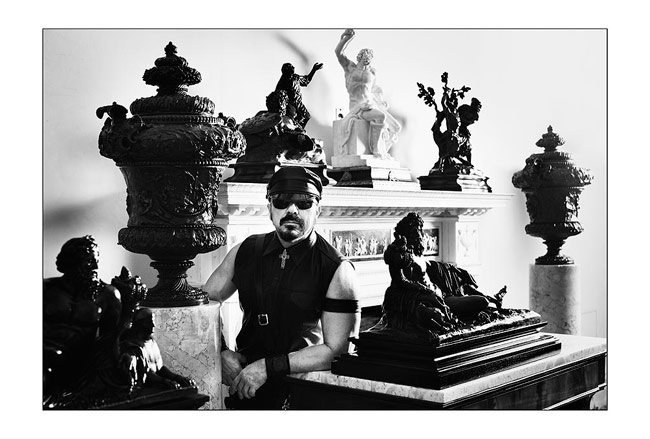
While the leather-clad king of retail architecture has been busy creating the flagship stores of a long list of luxury fashion brands - Chanel, Louis Vuitton, and Ermenegildo Zegna, to name just a few - he's been quietly amassing a vast collection of Renaissance and Baroque bronzes on the side. These extraordinary pieces are now on show at the Wallace Collection.
Marino's first encounter with a bronze was his grandmother's 'slightly racy' 1930s river-nymph, which held an ashtray. Since then he has gathered an impressive family of works by French and Italian sculptors, dating from 1550 to 1750, including Corneille van Clève's masterpiece, 'Bacchus and Ariadne'.
Although his passion for collecting art is no secret - set in motion by some of his early clients, like Andy Warhol and Yves St Lauren - this is the first time his private collection of bronzes has been seen by the public. We quizzed him about his compulsive collecting, his latest projects and, of course, his love for leather.
What inspired you to collect bronzes?
Several friends of mine had family with bronze collections, which sparked my initial interest. Then I started buying and selling them to clients. But the danger of being an obsessive compulsive like myself is you stop passing them on. I'd hear myself saying to clients, 'look at the movement, look at the patina, look at the colour...' If the only thing they noticed about a piece was the price, I'd end up keeping it myself.
But why bronze sculptures over any other medium?
I find it amazing that so much movement can be expressed in molten metal. The level of artistry is off the charts. People always dismiss bronzes, and they did so particularly in the 70s. If I asked them, 'Why are you dismissing something so gorgeous?' they'd say, 'Okay, but I'd rather have a Warhol'. Well, I've got Warhols and I'd rather have both.
Wallpaper* Newsletter
Receive our daily digest of inspiration, escapism and design stories from around the world direct to your inbox.
I always like to buy what's out of fashion. I'm very perverse like that. I've got a huge collection of 19th century French ceramics and when I bought the first piece for 10 Francs in a flea market, someone said to me: 'That's just unbelievably hideous. Don't you just hate that Victorian crap?' I'm always appalled that so many people spend their lives mouthing things that aren't really their own opinion. When you push them about something, then they sort of back off. I hate that banal, middle of the road mentality.
Do you see yourself as 'a collector'?
The term 'collector' implies a scholarly approach. Only people who are very self-important use that term. I just buy stuff. I wasn't even really aware that I collected bronzes until other people pointed it out. My house is a kind of 'Mad Max' environment. I live with the bronzes like they're my friends. My wife and daughter virtually have to push them aside to eat. I say things like 'Don't do that to Diana'.
You're known for creating modern temples to luxury like the Chanel and Louis Vuitton stores. How does this fit with 'Marino, the Renaissance bronze collector'?
Well, bronzes were the luxury status symbol during the Renaissance period. If you were Medici or a prince, you'd have a whole troop. Comparing the patina and the artistry was a definite status game.
Anyway, my job as an architect isn't to define luxury, it's to create a backdrop for luxury products. There's a big difference. I just make it look good.
You curated the Lalanne retrospective at the Musée des Arts Décoratifs in Paris, and the Meissen porcelain gallery at the Zwinger Palace in Dresden. Why the sudden surge in arts projects?
When the recession hit, four of our very large hotel projects were cancelled - one in Morocco, Abu Dhabi, Croatia, and the Caribbean. So I said, 'we're not going to make any money for a while, let's make culture instead'.
Creative disciplines like art and architecture are often very segregated. Do you set out to bring them closer together in your work?
Viewing art as just something you hang on a lobby wall is a kind of post-war industrialist mentality that has stuck for far too long. Think back to Renaissance times. What would the Sistine Chapel be without the ceiling? The artist should be involved before the lobby is even built. I commission art for almost every project I do, calling in sculptors, painters, ceramicists and plasterers right from the start. Artists see things from a different perspective, which is what I try to do.
What's the most interesting thing you've ever commissioned?
For the new Chanel store in Shanghai, we commissioned Jean-Michel Othoniel - the great glass artist - to make a giant, black and gold pearl lariat, which we suspended from the ceiling in the entrance. I would never have made the space so clean or so high if he hadn't come up with this crazed idea. It's so startling. I had to coax Chanel into keeping this space empty of handbags. I don't know of any other store with an entrance room completely without merchandise.
What do you see as the most important project of your career?
The Barneys New York flagship store, which opened in the 90s. I was just a normal architect then, without a specialty. Before I knew it, the press started calling me, 'retail expert, Peter Marino'. I kept thinking, 'who?'
What can we expect from you next?
I've designed a gigantic new London HQ for Louis Vuitton, which will open in May. The brief was to make it even more spectacular than the landmark store on the Champs Élysées, which was wildly successful, so it was no small challenge. I couldn't touch the historic façade, so I knocked everything else down internally. As you walk through the door you find yourself on a glass bridge over a moat. I think it will be different, and weird and kind of amazing.
Would you ever do a fashion collection? A line of leathers, perhaps?
My clothes are just for me. Leather is my thing. I design all my clothes myself and I have fun doing it but I actually really don't care what other people dress like. So no, I never would.
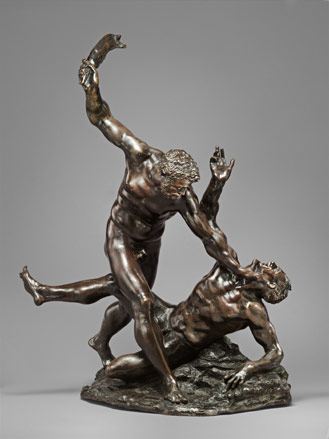
’Samson and a Philistine,’ perhaps by Bandinelli, c. 16th century. courtesy of Peter Marino
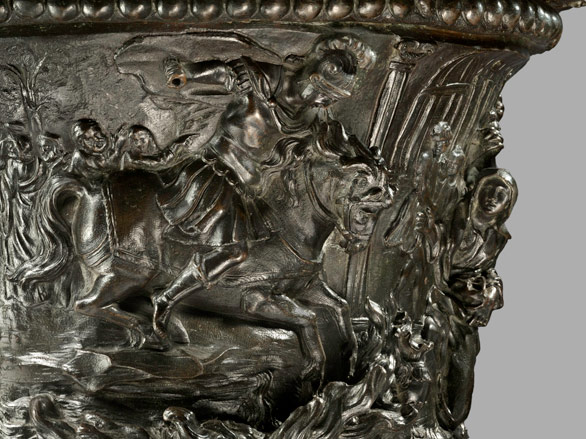
Vase perhaps by Lorenzo Vaccaro, c.1670-1700. courtesy of Peter Marino
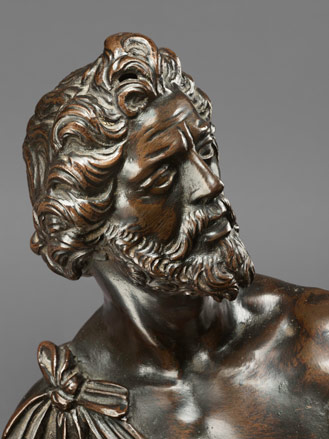
’Hercules and Iole’ by Ferdinando Tacca, c.1640-50. courtesy of Peter Marino
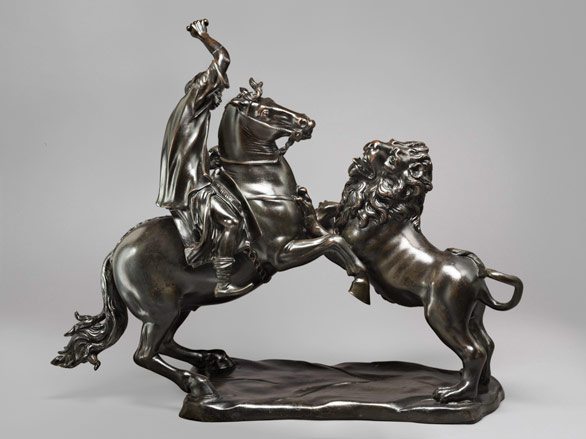
’Lion Hunt’ by Ferdinando Tacca, c.1645-55. courtesy of Peter Marino
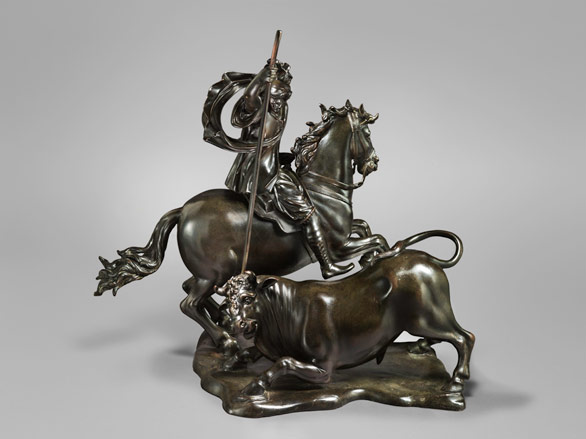
’Bull Hunt’ by Ferdinando Tacca, c.1645-55. courtesy of Peter Marino
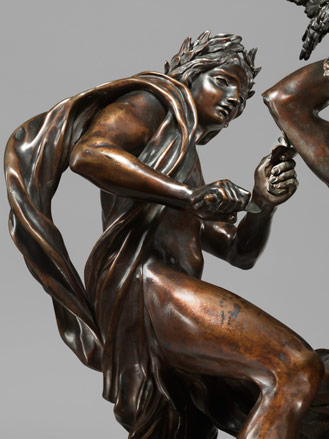
’The Flaying of Marsyas’ by Giovanni Battista Foggini, c.1710-20. courtesy of Peter Marino
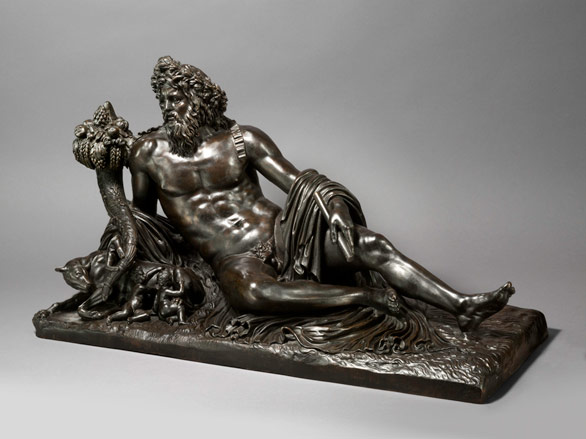
The River Tiber, a French piece produced in the early 18th century. courtesy of Peter Marino
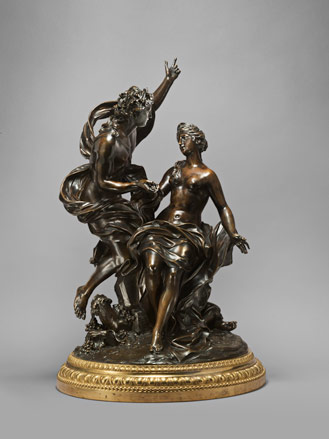
'Bacchus and Ariadne' by Corneille Van Clève, c.1703-04. courtesy of Peter Marino
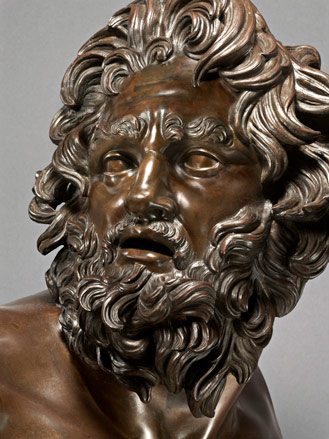
’Bust after the Borghese Centaur’, a French piece produced in the first half of the 18th century. courtesy of Peter Marino
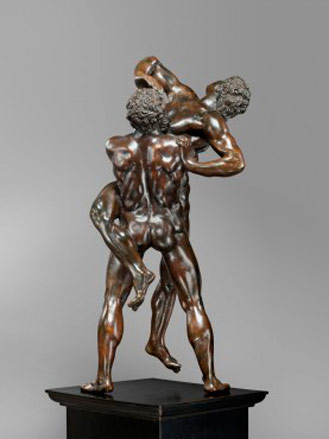
'Hercules and Iole' by Ferdinando Tacca, c.1640-50. courtesy of Peter Marino
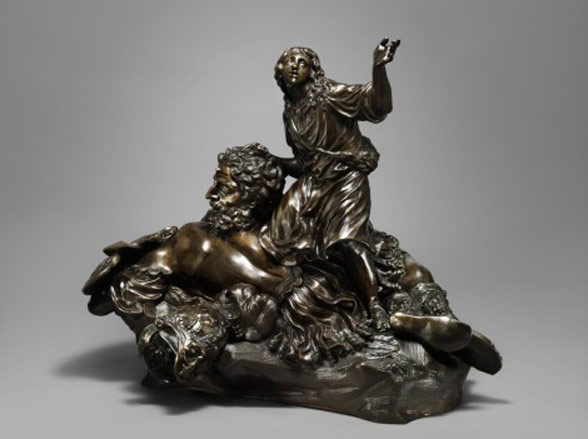
’David and Goliath’ by Giovanni Battista Foggini, c.1710-20. courtesy of Peter Marino
ADDRESS
Hertford House
Manchester Square
London W1U 3BN
Malaika Byng is an editor, writer and consultant covering everything from architecture, design and ecology to art and craft. She was online editor for Wallpaper* magazine for three years and more recently editor of Crafts magazine, until she decided to go freelance in 2022. Based in London, she now writes for the Financial Times, Metropolis, Kinfolk and The Plant, among others.
-
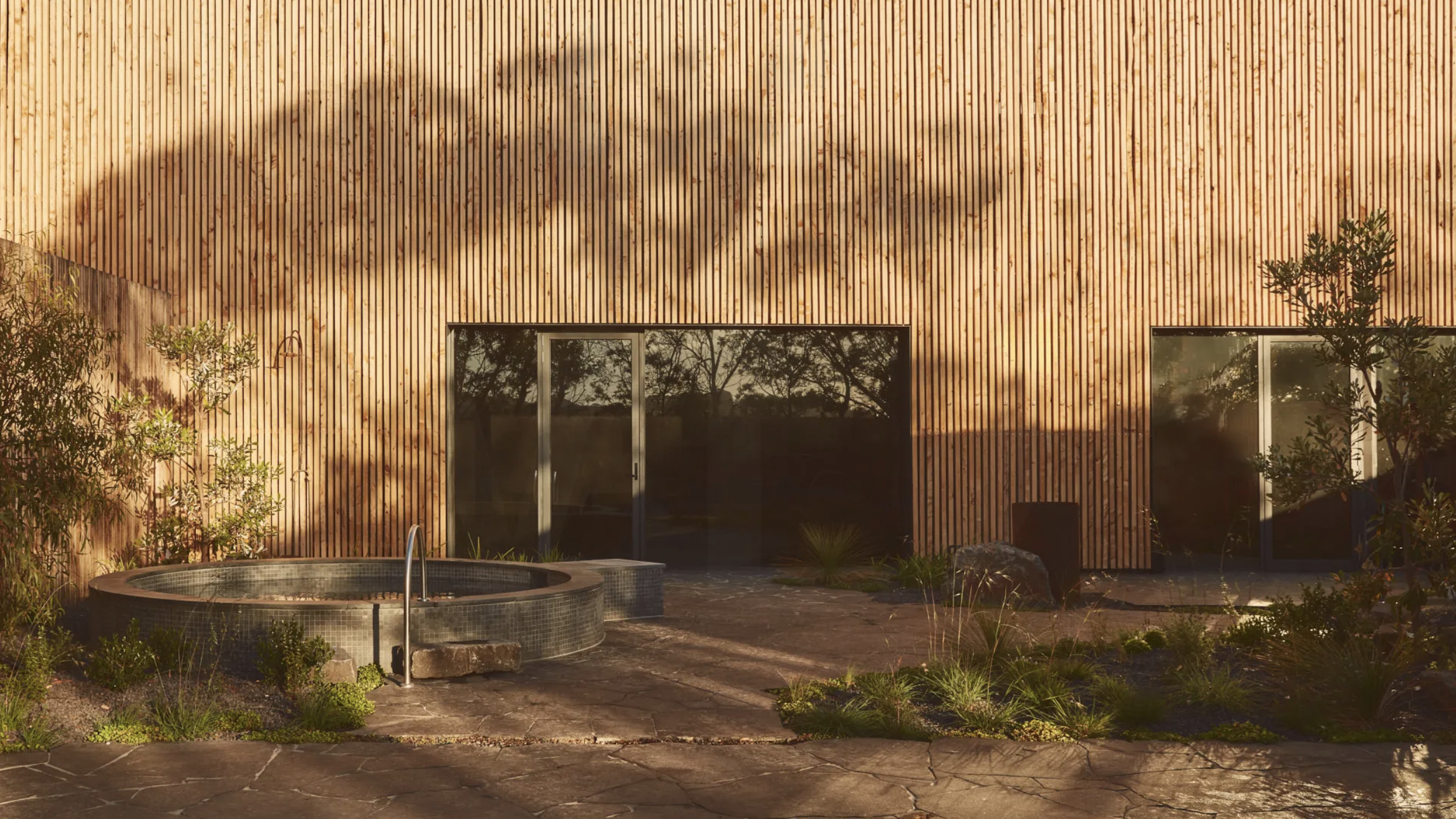 Australian bathhouse ‘About Time’ bridges softness and brutalism
Australian bathhouse ‘About Time’ bridges softness and brutalism‘About Time’, an Australian bathhouse designed by Goss Studio, balances brutalist architecture and the softness of natural patina in a Japanese-inspired wellness hub
By Ellie Stathaki
-
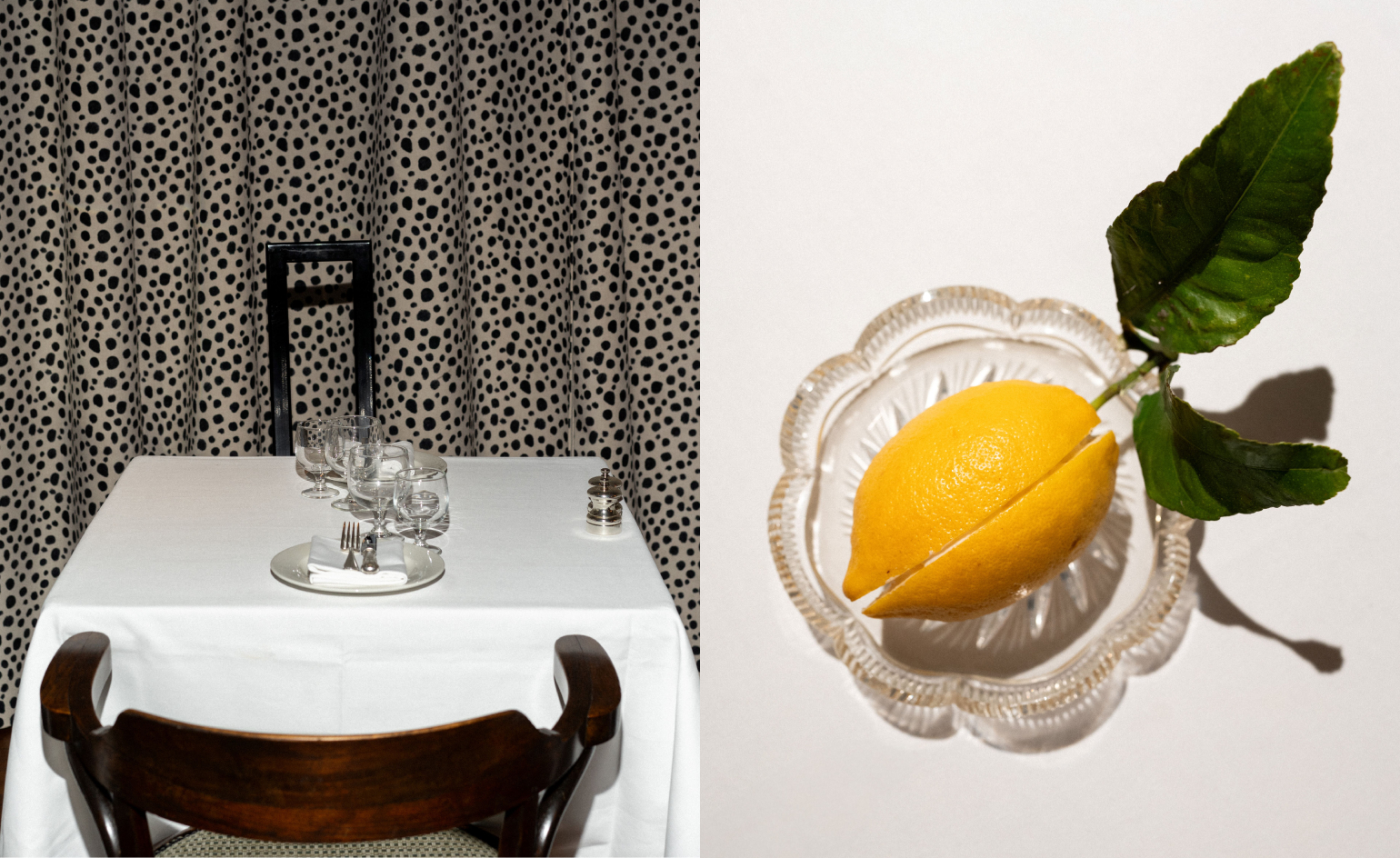 Marylebone restaurant Nina turns up the volume on Italian dining
Marylebone restaurant Nina turns up the volume on Italian diningAt Nina, don’t expect a view of the Amalfi Coast. Do expect pasta, leopard print and industrial chic
By Sofia de la Cruz
-
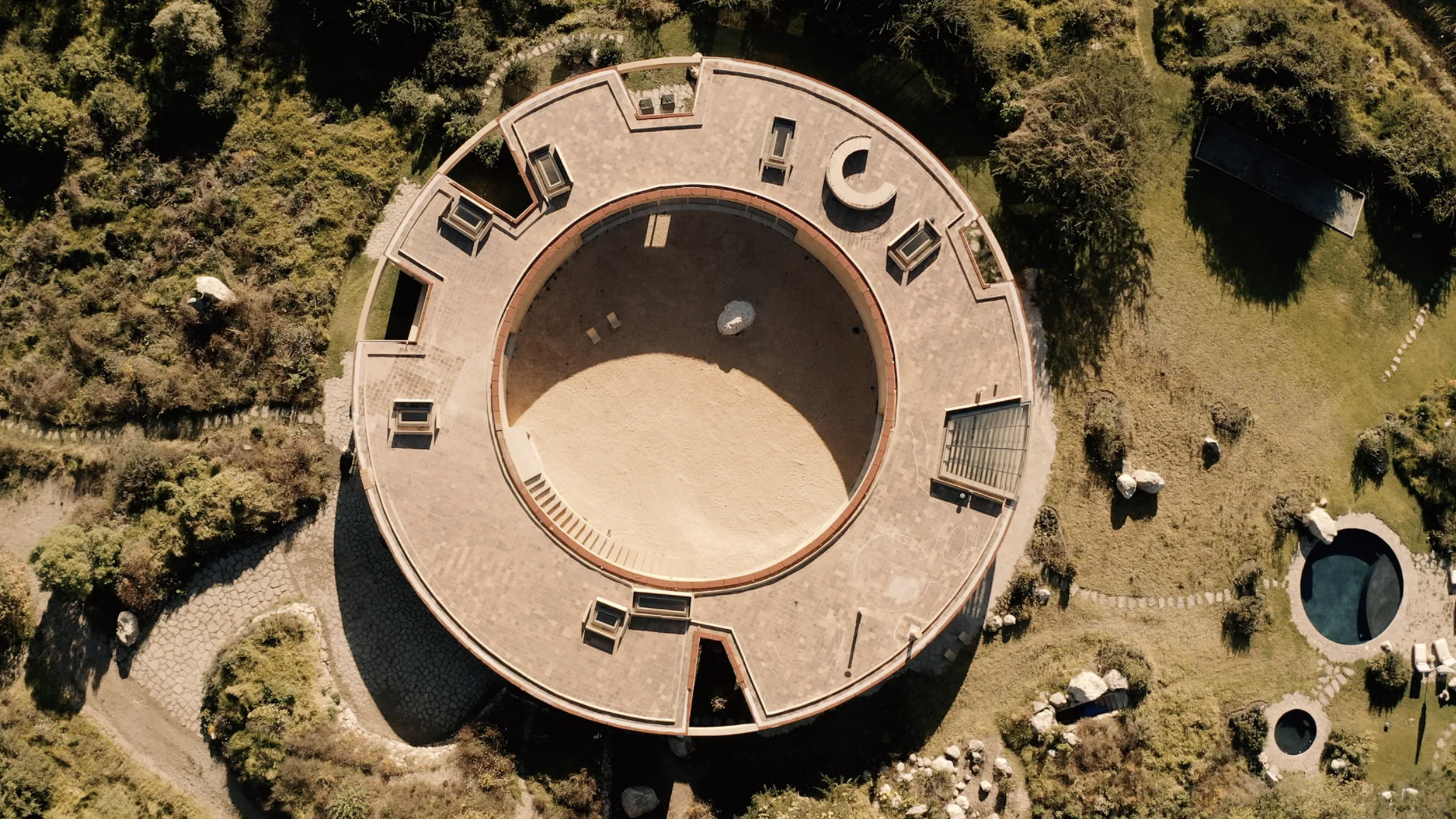 Tour the wonderful homes of ‘Casa Mexicana’, an ode to residential architecture in Mexico
Tour the wonderful homes of ‘Casa Mexicana’, an ode to residential architecture in Mexico‘Casa Mexicana’ is a new book celebrating the country’s residential architecture, highlighting its influence across the world
By Ellie Stathaki
-
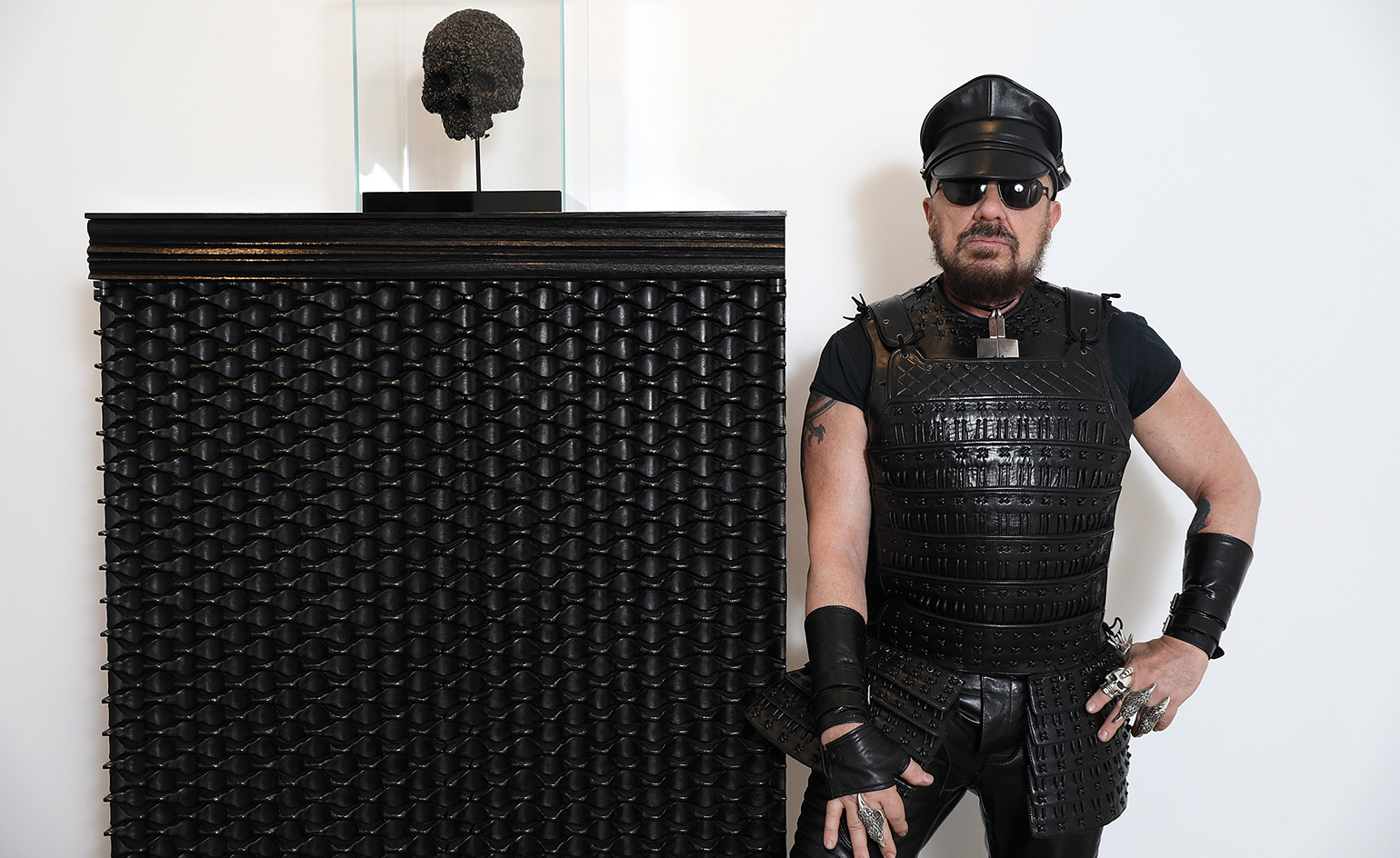 Material world: Peter Marino reflects on bronze, mythology and timeless design
Material world: Peter Marino reflects on bronze, mythology and timeless designBy Elly Parsons
-
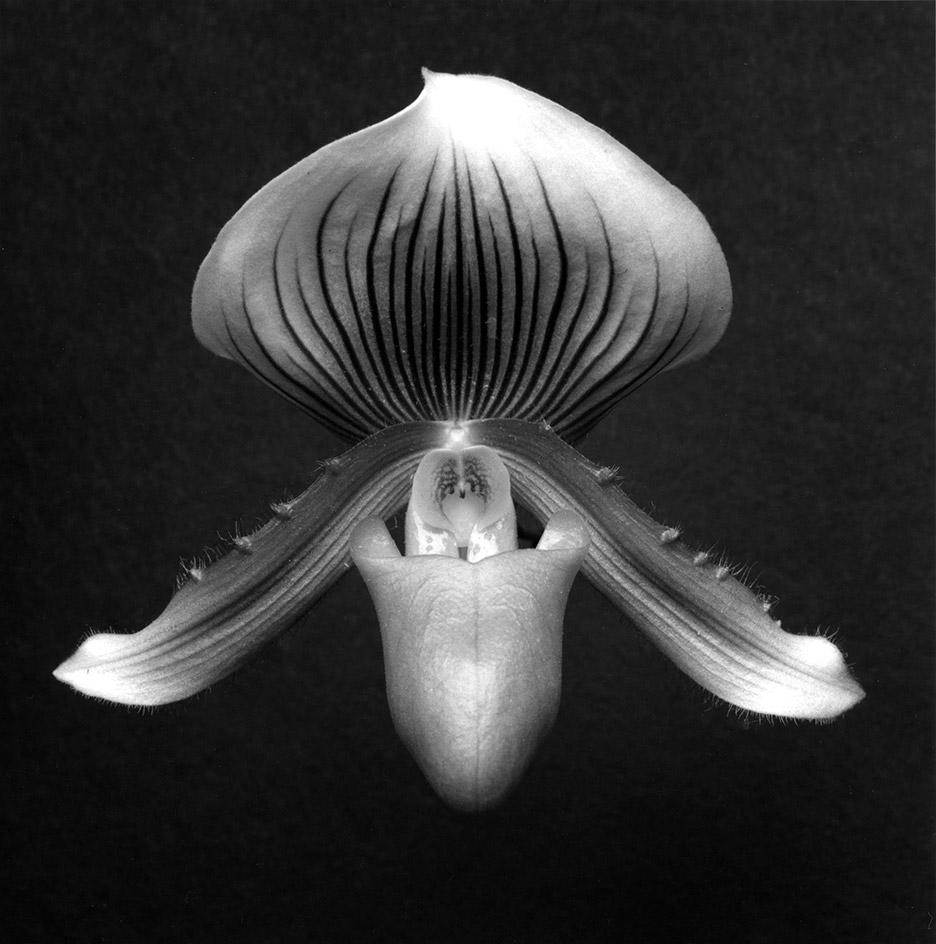 Peter Marino delves deep into his collection for a new Robert Mapplethorpe show
Peter Marino delves deep into his collection for a new Robert Mapplethorpe showBy Tom Howells
-
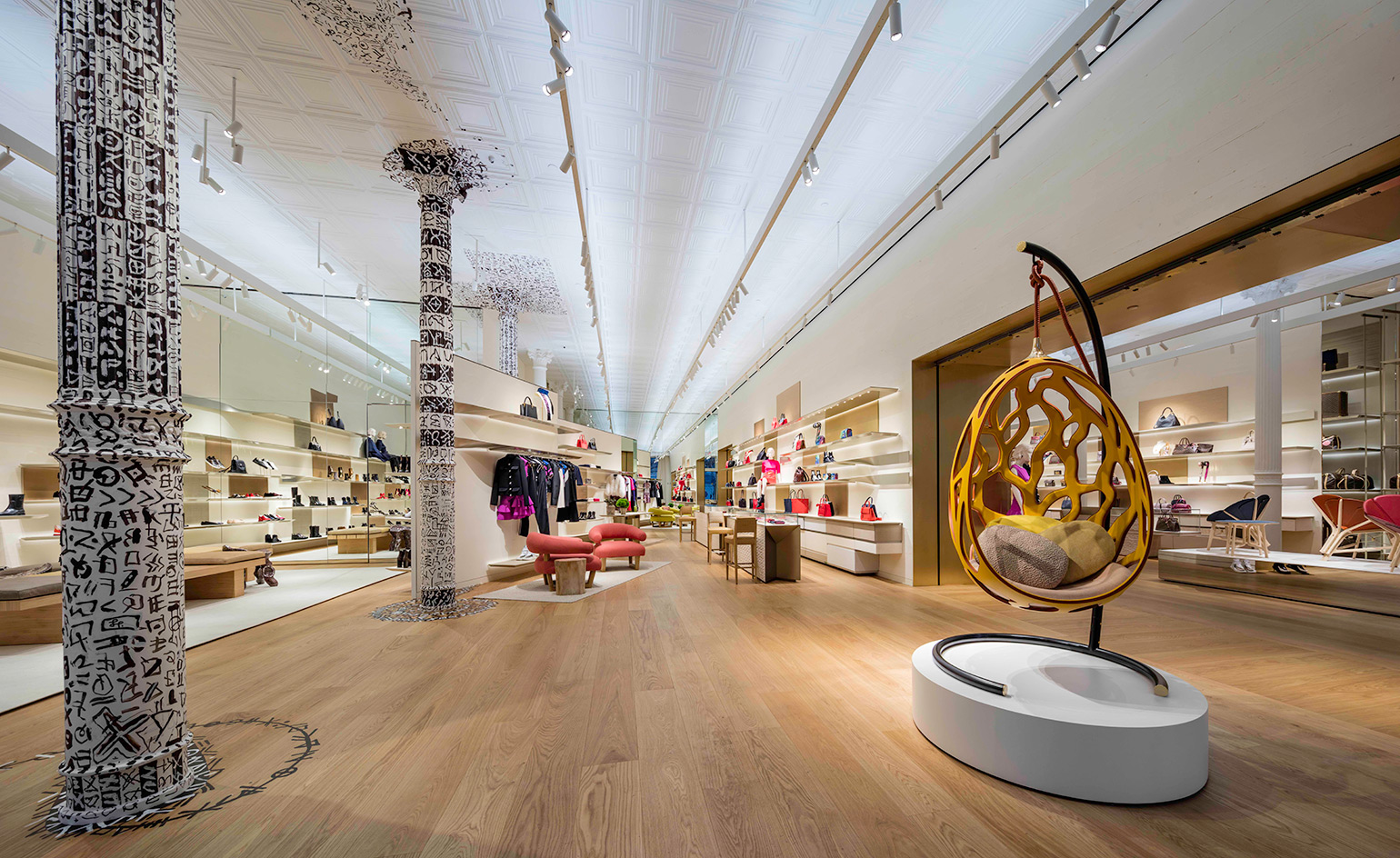 State of the art: Peter Marino’s gallery inspired store for Louis Vuitton
State of the art: Peter Marino’s gallery inspired store for Louis VuittonBy Laura Hawkins
-
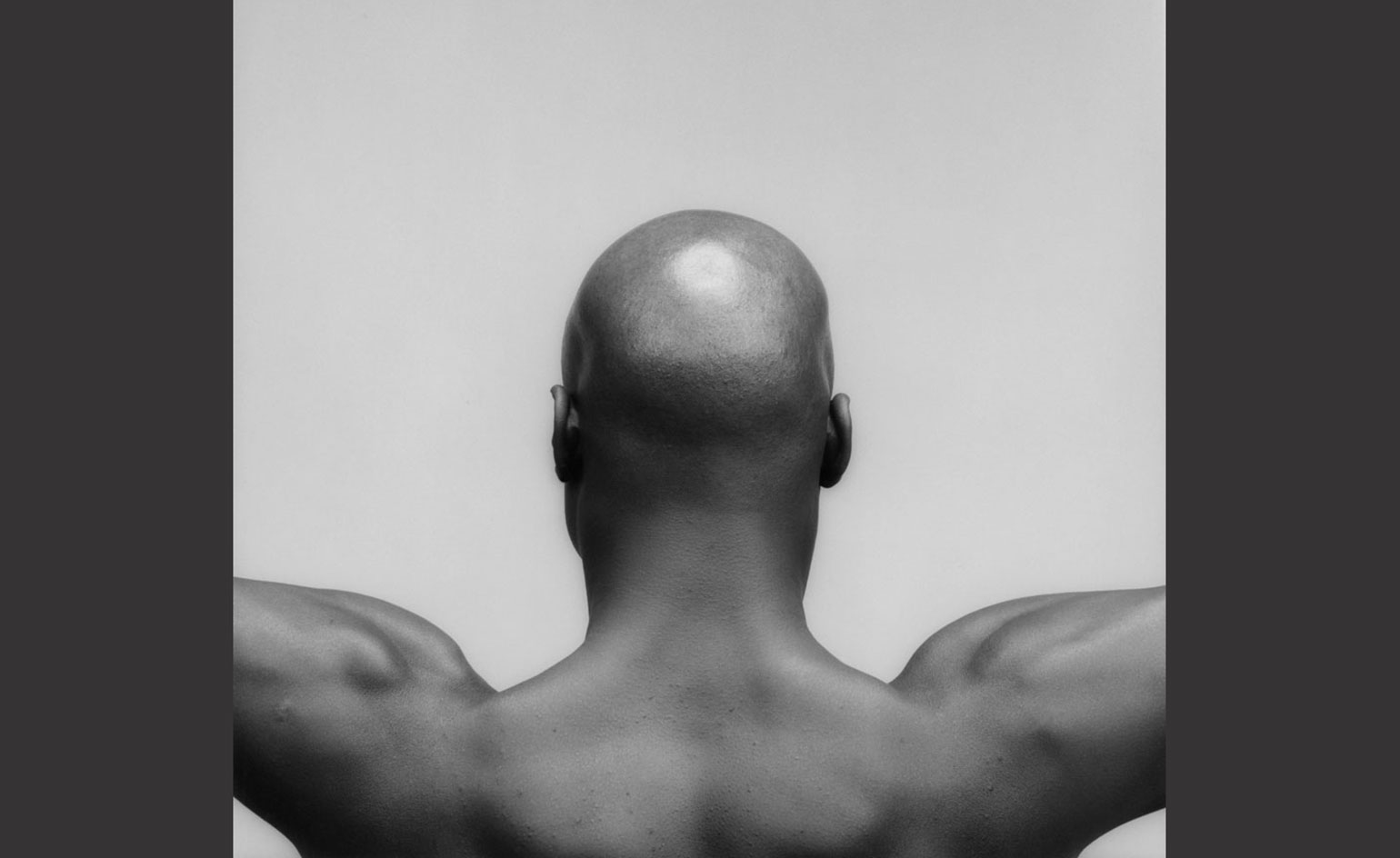 Peter Marino channels Mapplethorpe’s trinity of sex, flowers and nudes
Peter Marino channels Mapplethorpe’s trinity of sex, flowers and nudesArchitect Peter Marino channels photographer Robert Mapplethorpe's trinity of sex, flowers and nudes at Gallerie Thaddaeus Ropac in Paris
By Amy Verner
-
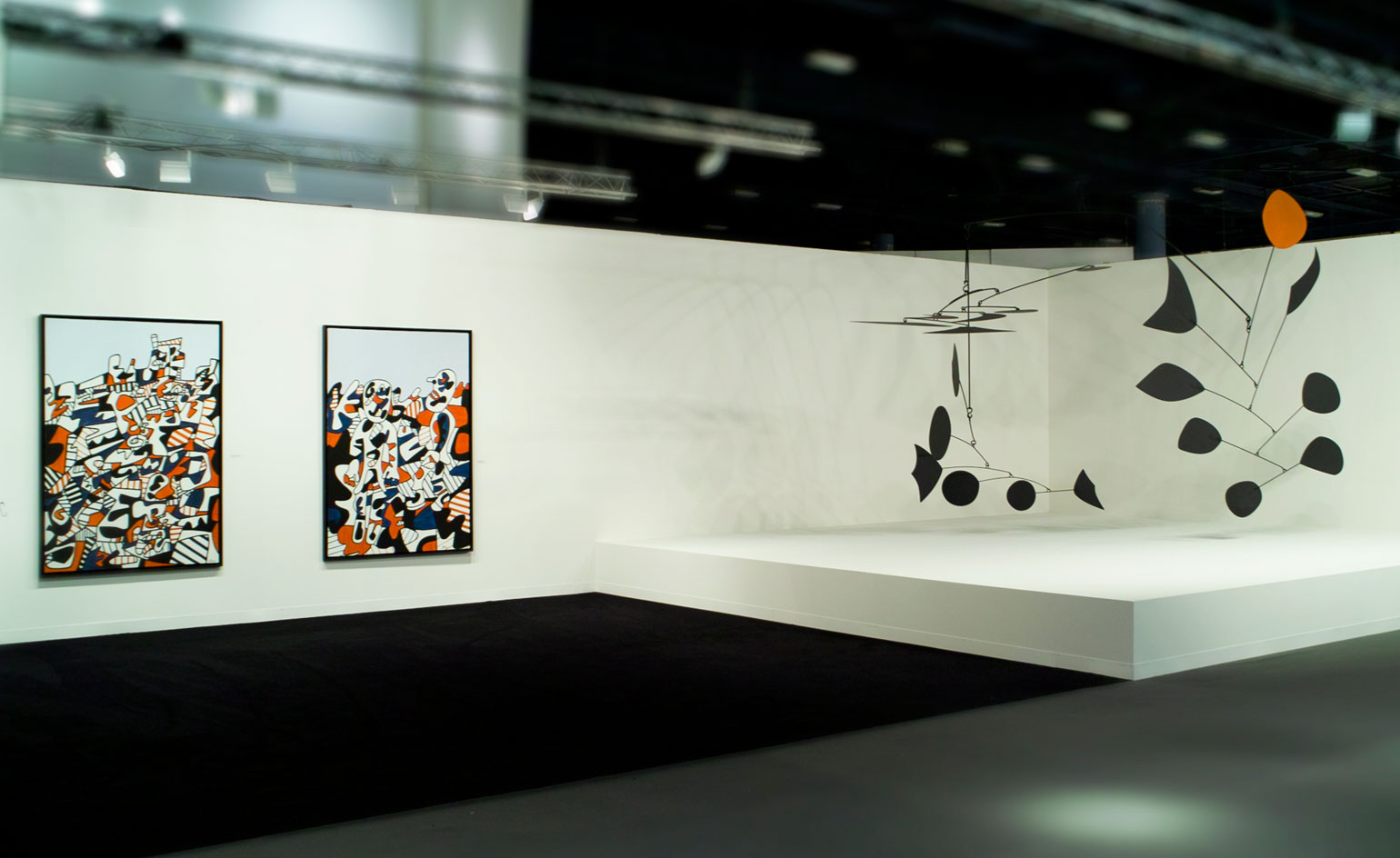 Art Basel Miami Beach 2014: big-ticket artists and collectors bring the Floridian fair to the fore
Art Basel Miami Beach 2014: big-ticket artists and collectors bring the Floridian fair to the foreBy Caroline Roux
-
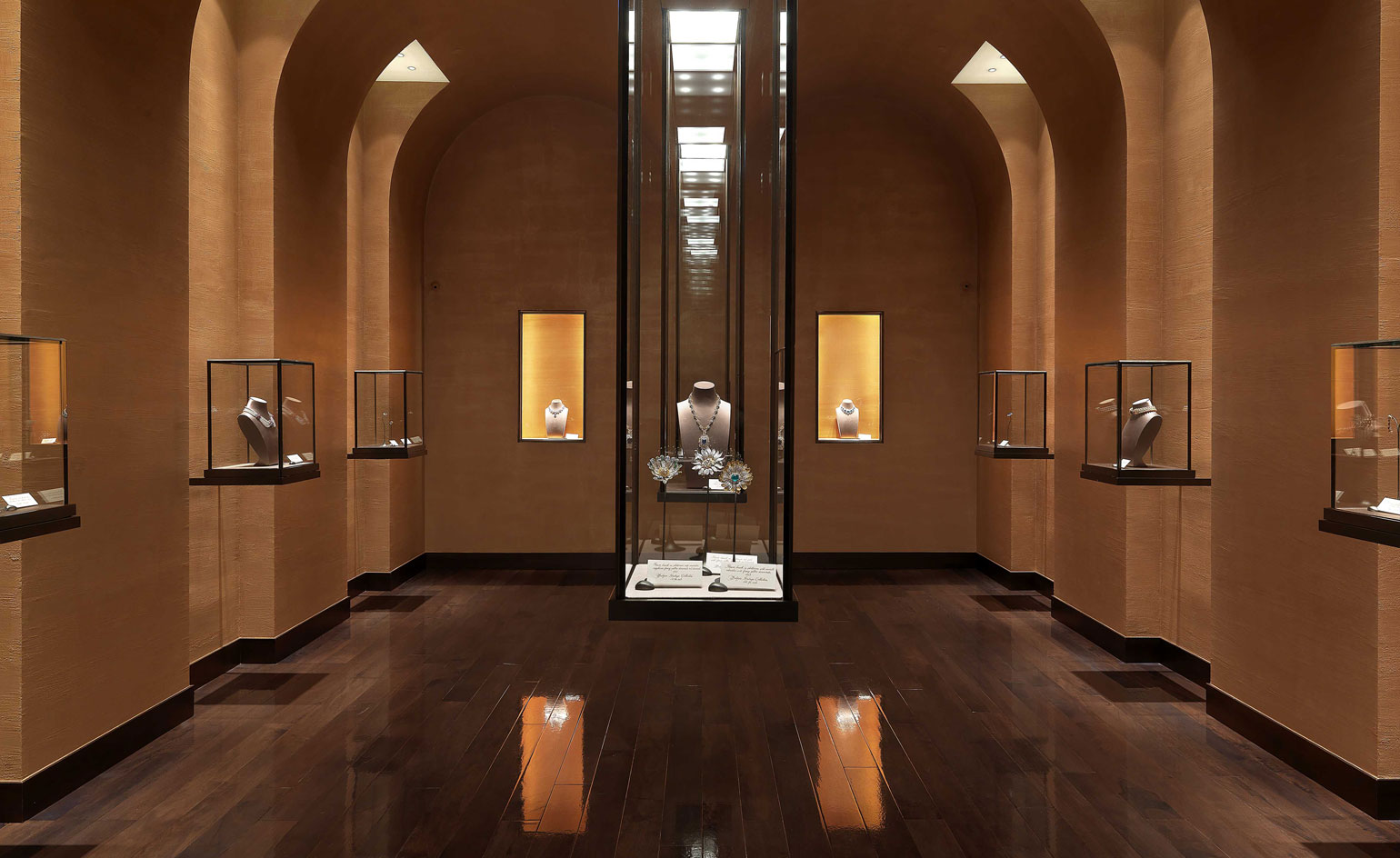 Bulgari opens a Rome gallery dedicated to the jewels that shaped its legacy
Bulgari opens a Rome gallery dedicated to the jewels that shaped its legacyBy Siska Lyssens